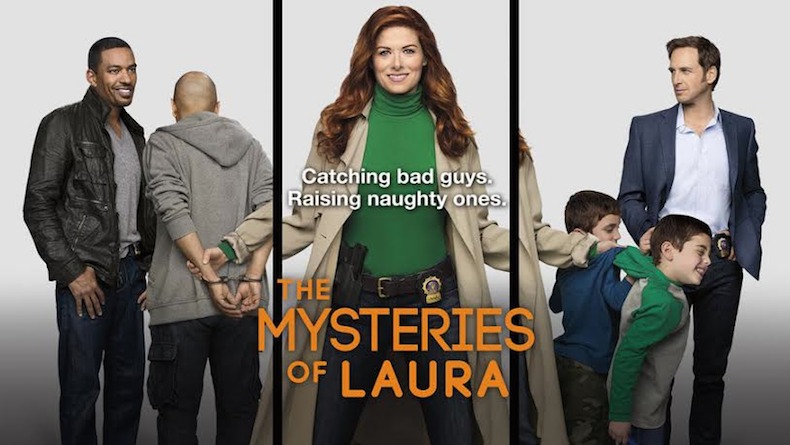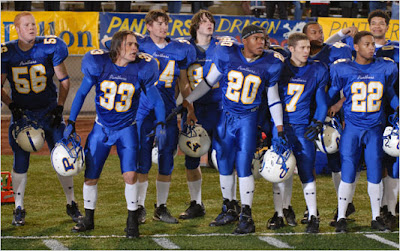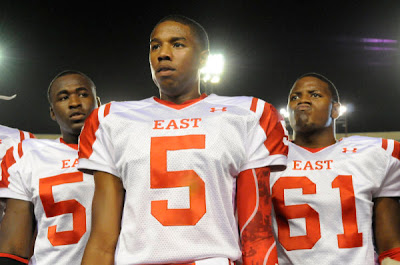Fall TV Pilot Challenge 2014
Each fall, TV pilot season brings with it equal parts trepidation and excitement for me. Okay, maybe not “equal.” The truth is, even the best round of pilots features way more zeroes than heroes and thus, it’s tough to get TRULY psyched up given the atrocities the networks throw at us. But I do love TV and I really love a challenge so each fall, I attempt the “TV Pilot Challenge”: I watch them all. ALL OF THEM. Even the ones I know will bring me to the brink of wearing an aluminum hat and becoming a sewer person. And is my way, I attempt to use this difficult time for good by reviewing them all in short order to help you use your free time more wisely than me. So let’s get to this, going from the best pilot (and any subsequent episodes I might have seen) to the worst. And by “worst”, I mean quite possibly the worst of all time. SIDE NOTE: For an extra look at these wonderful TV offerings in addition to some other opinions besides my own, check out the latest episode of the Mad About Movies podcast. It's a good one.
Black-Ish (Anthony Anderson, Tracee Ellis-Ross, Laurence Fishburne) ABC is no stranger to terribly titled sitcoms (See: Trophy Wife, Suburgatory, Selfie) but Black-ish might take the cake. They’re practically begging people in all demographics to stay away. But as it turns out, Black-ish is actually a smart, light-hearted, and humorous show featuring solid writing. It seems like a cop out to call it “The Cosby Show for the 21st century” but I think that’s exactly what the show is going for and I’m okay with that. The episodes following the pilot show promise and have demonstrated an ability to put a modern spin on classic family sitcom tropes. Grade: A- The series record has been set in my household and I doubt that’s being retracted anytime soon.
Marry Me (Carey Wilson, Ken Marino) This was the last pilot to air prior to this writing and turned out to be well worth the wait. I found the chemistry between Wilson and Marino to be quite enjoyable and the setup more than entertaining. Marry Me also has one thing going for it that every other pilot is missing: it’s quick. Marry Me feels like it would fit in a 30 Rock-The Office-Parks and Recreation comedy block and oh, how I miss that lineup. Grade A- This is a very modern sitcom and as long as the writing stays sharp, I’m in.
Jane the Virgin (Gina Rodriguez, Justin Baldoni, Brett Dier) Okay, I know what you’re thinking. I can hardly believe it myself. A CW show with that title can’t possibly be any good, right? THAT’S WHAT I THOUGHT. Turns out Jane the Virgin takes a soap opera-level concept (a twentysomething do-gooder virgin is accidentally artificially inseminated and shenanigans ensue) and turns it into a quirky, genuinely heartfelt dramedy that works on nearly every level. Honestly I might have put it at the top of my list if I wasn’t sure it would make all of you immediately click away. There’s a bit of a Pushing Daisies feeling to this one and man oh man, would I love a Daisies resurgence. I’m shocked by how good this is. Grade: A- There’s a very good chance this ends up getting CW-ed but until then, I’m intrigued.
The Flash (Grant Gustin, Candice Patton, Jesse L. Martin) Whoa, two CW shows back to back? Is this real life? Whatever is happening at CW Headquarters (I assume they’re based somewhere in Iowa), I like it. The Flash is much more light-hearted and even a bit cheeky compared to its big brother Arrow but that works for the material and the setting. And honestly, it’s kind of a breath of fresh air as compared to the edgy, dark superhero kick that we’re on right now but sometimes it’s nice to see a superhero have fun. The Flash is much closer to Smallville than Arrow and that’s a good thing in my opinion. Grade: B+ As with Jane the Virgin, this could definitely go all CW quickly but I’m in until that point
Gracepoint (David Tennant, Anna Gunn, Virginia Kull) Gracepoint has drawn criticism because it is based on (really it’s a remake) a British series called Broadchurch, a show I haven’t seen and therefore can’t compare it to. I will say, I’m not quite as into Gracepoint as I expected to be. The premise is fantastic (a 10 episode mini-series about a murder in a small town with almost every character considered a suspect) and there’s a tracking shot early in the pilot that is gorgeous. But it lacks the life that I would expect a murder-mystery-event to bring to the table. In fairness, I think it might just be one of those shows that is better when binged on all at once rather than week to week. Grade: B I’m intrigued but I’m not obsessed like I want to be
Scorpion (Elyes Gabel, Katherine McPhee, Robert Patrick) I’m no fan of the CBS drama. They’re all very formulaic, very bland, very “TNT day time programming” to me. There’s a good chance Scorpion ends up going that route soon but the pilot (and the handful of episodes I’ve seen since) tried to dance lightly through the clichés and put together a couple of action set pieces that looked better than most anything on network TV. Moreover, while some of the ancillary characters need to burn in a TV fire, there’s a measure of real heart within the main storylines that’s missing in most of these shows. Grade: B A fairly throw-away show but sometimes that’s exactly the kind of entertainment I need
How to Get Away with Murder (Viola Davis, Alfred Enoch, Billy Brown) The closing chapter of ABC’s “Shonda Rhimes Night” (following Grey’s Anatomy which is somehow STILL A SHOW and Scandal), How to Get Away with Murder features a fantastic actress (Davis, duh) at the peak of her game and an interesting concept. Unfortunately, that’s all it has going for it. On its own, the pilot is fairly decent. But when you add in the following episodes, you see that the massive flaws in the first hour only get worse. I actively HATE most of the characters in this show and while the cases Davis’ character takes on each episode can be fun, the connecting story line is one that I can tell will drag on for years and never pay off. This is not for me. Grade: B- I tried
Madam Secretary (Tea Leoni, Keith Carradine, Zeljko Ivanek) I expected to hate this one but Leoni was likeable enough to carry me through. Madam Secretary badly wants to be Sorkin-esque but it’s not quick or smart enough to handle those ambitions so instead it sort of settles down into a nice, comfortable bed of CBS-ness. It’s not bad and if the writers figure out a way to rid themselves of some of the more cringe-worthy characters (I’d start with the media-savvy aides that ostensibly will bring in the young crowd but instead sent me into a blind rage) and too-familiar plotting, there’s a chance Madam Secretary could become The Good Wife: White House. Grade: B- Not great but I might check back in next season to see if it’s improved
Gotham (Ben McKenzie, Donal Logue, David Mazouz) The idea is interesting (a pre-Batman Gotham City featuring Jim Gordon as a newly-minted detective and a pre-teen Bruce Wayne just after the death of his parents) and of course I’m a sucker for superhero stuff. Plus, McKenzie is a genuinely good TV actor and sleazy Donal Logue is exceptional. But I must say, this one needs to get better fast or I’m out at season’s end. The plotting and characters need work but my biggest issue is the tone. Gotham is posing as fun, week-to-week entertainment but in reality it’s exceedingly harsh and dirty and that just doesn’t play very well on network television. Grade: B- I’ve got one foot in…
Selfie (Karen Gillan, John Cho) Ugh, seriously ABC, these titles have got to stop. I get a little grumpy even saying the word “selfie” let alone watching a show with that title. Gross. Selfie has two things going for it, though. One, it has good bones, as it is a (loose) modern retelling of My Fair Lady/Pygmalion. Second, the leads are excellent and wholly likeable. To get through the pilot, though, you really have to hold those positives close and hope everything turns out alright. There are more pop culture references in the first five minutes of this show than the average sitcom goes through in an entire season. It’s almost nauseating. I was cautiously optimistic that the good pedigree would will out but the second episode led me to believe the show would be getting dumber before moving forward and thus, I’m probably out. Grade: C+ Somewhere, someday, you’ll get a good project to work on, John Cho
A to Z (Ben Feldman, Cristin Milioti) I wanted to like this one and in fact, I actually did kind-of-sort-of like the pilot. But in the middle of the second episode I quit and I doubt I’ll ever go back. This is a major disappointment because the main characters are both likeable and relatable and the leads are delightful. But every second that A to Z features literally any other cast member is akin to a very brutal form of punishment. This is a master class in sabotaging your own material with characters that literally no one can relate to and certainly no one could love. Grade: C+ You guys know how bad a show has to be for me to quit half way through an episode?
Red Band Society (Octavia Spencer, Charlie Rowe, Nolan Sotillo) In the first 10 minutes of Red Band Society, I started walking around the neighborhood looking for puppies to kick. During the middle 20 minutes, I sat sulking in the corner glaring at the TV. And in the last 10 minutes, I started to see a parallel universe in which this show wasn’t terrible and could actually succeed. Unfortunately I think it’s that last 10 minutes that’s a mirage, not the first 30. Red Band Society feels like a show that was written by a bunch of 40 year olds while watching the second season of Glee in 2010. It is painfully outdated and trying wayyyyy too hard to be cool and that’s a shame because somewhere in there you could probably pull together a pretty decent teen drama. Grade: C Is this the best we can do for Academy Award winner Octavia Spencer?
Mulaney (John Mulaney, Martin Short, Nasim Pedrad) I readily admit that giving this pilot any grade higher than a D is related entirely to my bias toward creator and star John Mulaney. Mulaney is a singularly talented comedian, both as a stand up and a writer, and there will come a day when he will become a true star in some way or another. Mulaney though…not so great, John. The second episode showed a great deal of improvement and if it gets the chance to run 10 or 13 episodes, I think it could become actually good. It’s basically Seinfeld for 2014 because John Mulaney is, well, (young) Jerry Seinfeld for 2014. But I doubt it’ll get the chance. Grade: C Check out his “New in Town” stand up set or Google the Stefon sketches from SNL for a true taste of John Mulaney
NCIS: New Orleans (Scott Bakula, Lucas Black, Zoe McLellan) There’s nothing overwhelmingly BAD about NCIS: New Orleans. It’s passable, harmless, and judging by the ratings, it’ll be on the air for at least 10 years. My problem is the complete and total lack of anything even sort of resembling originality. Bakula and company end up working a case that I’m certain has been done on NCIS, NCIS: Los Angeles, Bones, Castle, or virtually any other network procedural of the last 20 years. It’s comfortable, which is why it’ll be successful, but it’s also egregiously lazy and derivative. Grade: C- The New Orleans “culture” within the show is pretty bad, too
Cristela (Cristela Alonzo, Maria Canals-Barrera, Carlos Ponce) I get what ABC is doing with Cristela. This is a fairly cheap show to produce for a time slot (Friday nights) that doesn’t really matter, it adds to the diversity of the network, and it gives them an opportunity to get in business with an up-and-coming comedian in Alonzo. That doesn’t mean it’s good (it’s really really not) or that it’s for me (it’s really really REALLY not) but I can at least see why it got the green light, which is more than I can say for most of the following shows. Grade: C- Those accents though…
Bad Judge (Kate Walsh, Tone Bell, Ryan Hansen) This show feels like a joke. Literally. Like two mid-level executives at NBC who both hate their jobs made a bet regarding who could get the worst sitcom on the air and one of them won BIG TIME. I just can’t believe this made the air. Bad Judge is unfunny and tasteless but perhaps its biggest sin is it isn’t tasteless enough. I’m not saying I’d enjoy it but you can sell Bad Judge if the judge in question is actually bad; a character in dire need of redemption is doable. But “bad” for this show means Walsh drives a stoner van, has gentlemen visitors in her chambers, and doles out “comical” punishments. Ha! Grade: D There’s no way this one makes it to January
Stalker (Maggie Q, Dylan McDermott) You know who doesn’t need to be allowed a public presence anymore? Stalker show runner Kevin Williamson, the genius behind the Scream movies and The Following. Williamson loves two things in this world: Torture porn and sensationalizing serial killers, which of course go hand in hand. Stalker is horrific, ugly, and twisted in the worst sense of the word. Moreover, even if the content itself wasn’t fairly repugnant, the writing is TERRIBLE and the actors seem like they couldn’t care less. Grade: D We’re done now, Dylan McDermott
Manhattan Love Story (Analeigh Tipton, Jake McDorman) The characters of Manhattan Love Story are so one-note as to be incapable of growth or development and the conceit (the audience can hear the inner monologue of the two main characters) is so painfully limited that even if this somehow did succeed, there’s no way it could be held together for 10 episodes, let alone two or three seasons. And how does the show use this storytelling trick of letting us into the minds of our young heroes? Within the first minute of the show, we learn the male lead likes breasts and the female lead is obsessed with purses. Uncanny insights! Grade: F The term “active hatred” would apply here
The Mysteries of Laura (Debra Messing, Josh Lucas, Laz Alonso) Look. I get that we all enjoy a little junk food. Whether your junk food is a bad movie, an embarrassingly catchy pop song, or a lazy formulaic TV show, we all have our weaknesses. I try not to judge people to harshly for their junk food tendencies. It may not be for me but if it works for you, then that’s fine. If The Mysteries of Laura works for you, it is NOT fine. Forget the fact that the writing is some of the worst you will ever see on network television. Forget the fact that Debra Messing is thoroughly unconvincing in this role. Forget the fact that the only way the show can make Messing’s character look good is to make it clear that literally everyone around her (including her pre-school aged kids) are terrible human beings. Put all of those VERY SERIOUS flaws aside and focus on the stupidity of the entire premise of the show: “Debra Messing has a job AND she’s a mom! What?! She does both, you guys! For the first time in the history of the species, a woman is attempting to balance both home and office! Haha, can you believe this?! Tune in Wednesday to see all the crazy shenanigans that pop up!” It takes a LOT to offend me but that’s one of the most offensive messages a network TV show has sent our way in a very long time. NBC is telling America that they believe you are stupid and if you’re watching and enjoying this show, you are confirming their belief. So stop it. Stop it now. Grade: An “F” is too generous DON’T BE STUPID





























